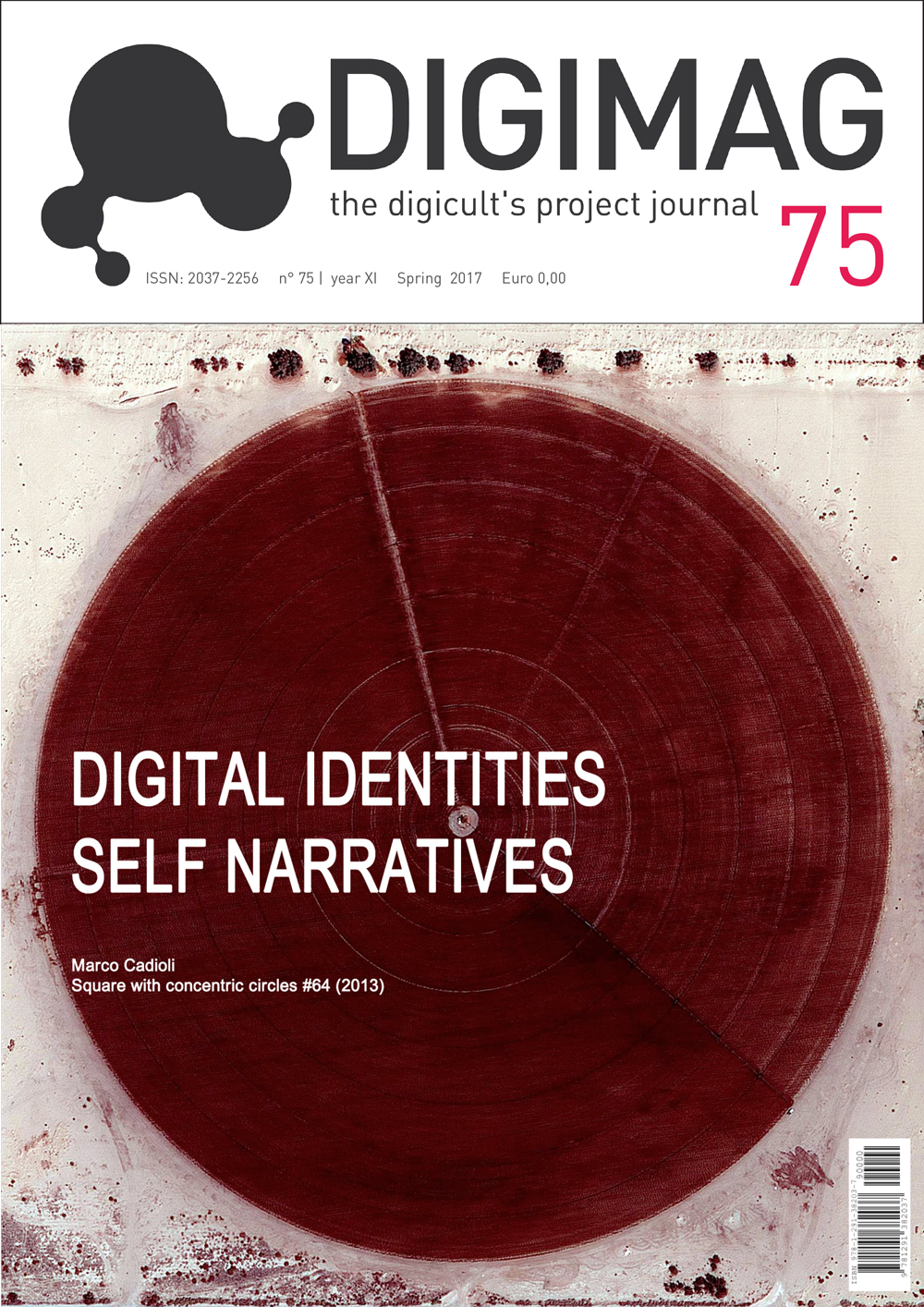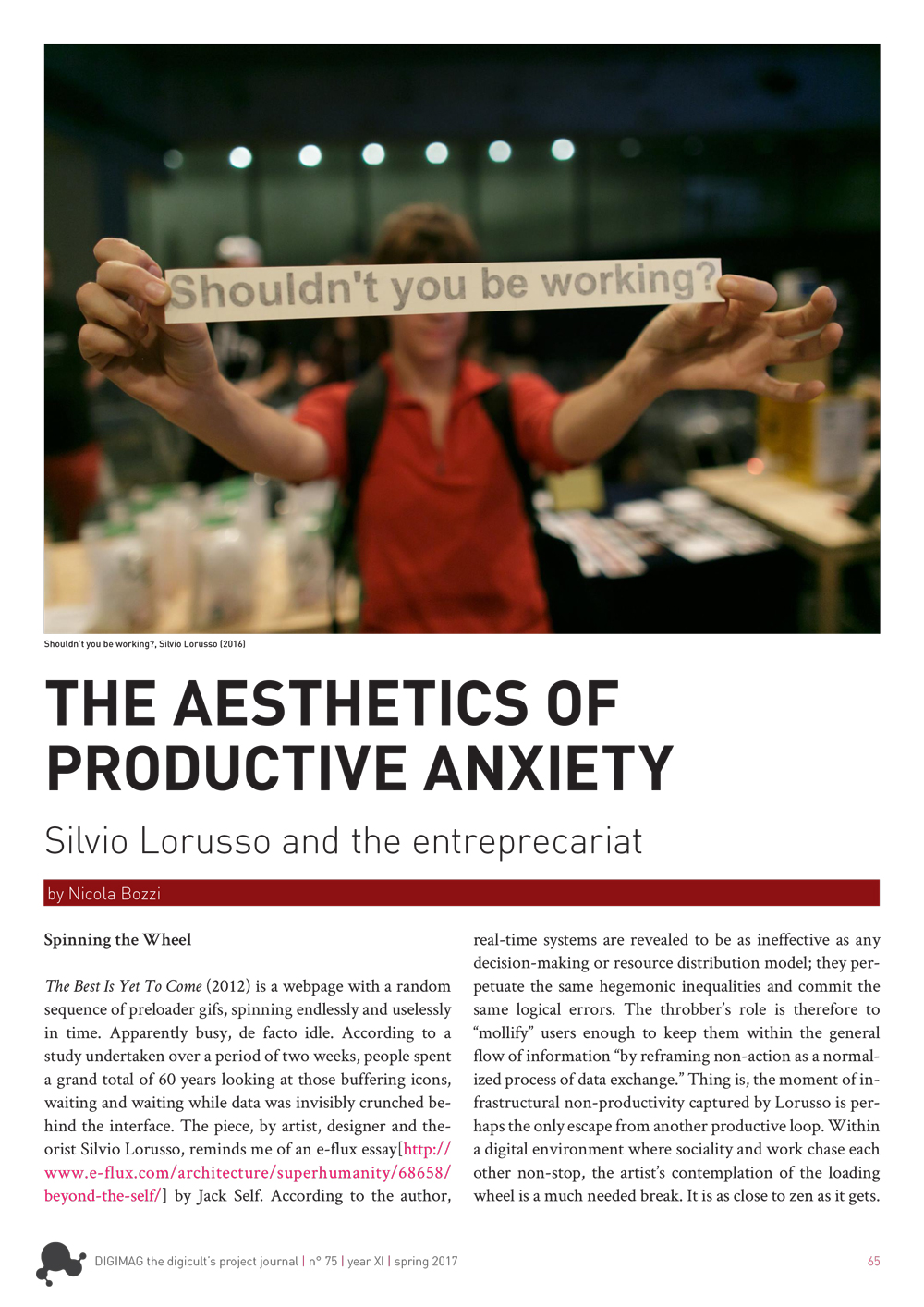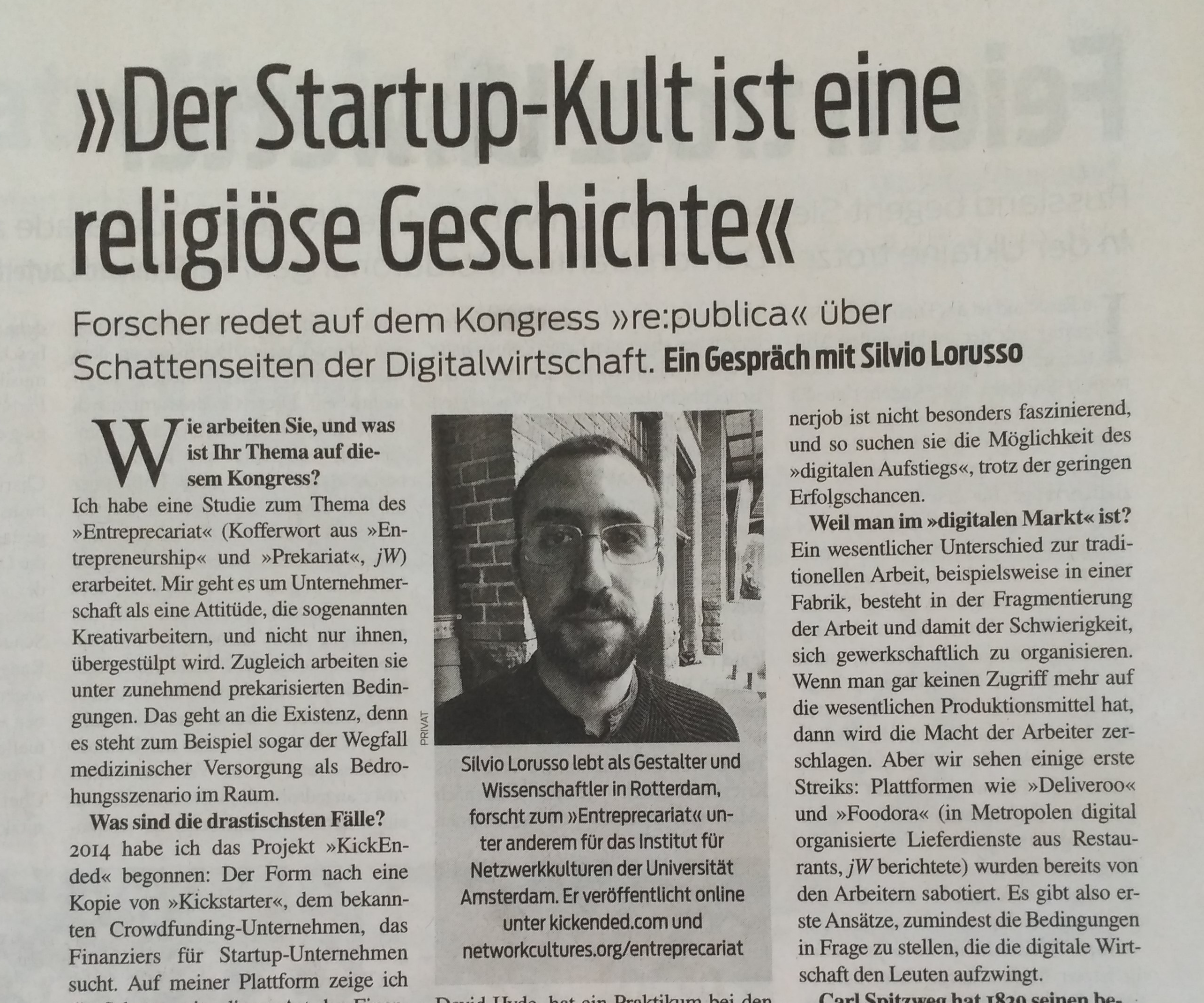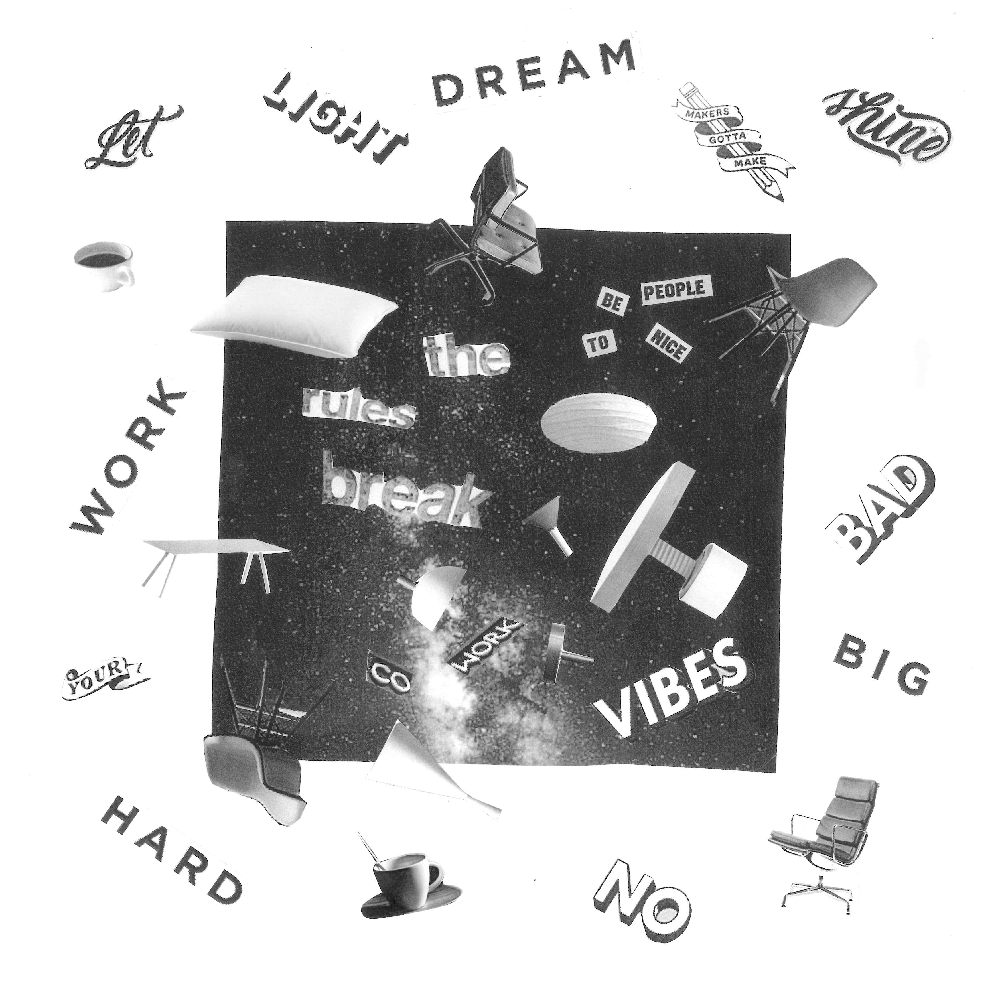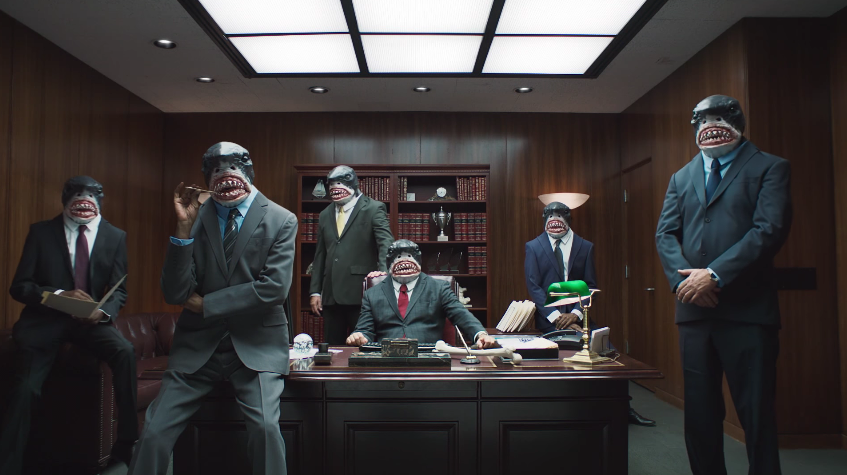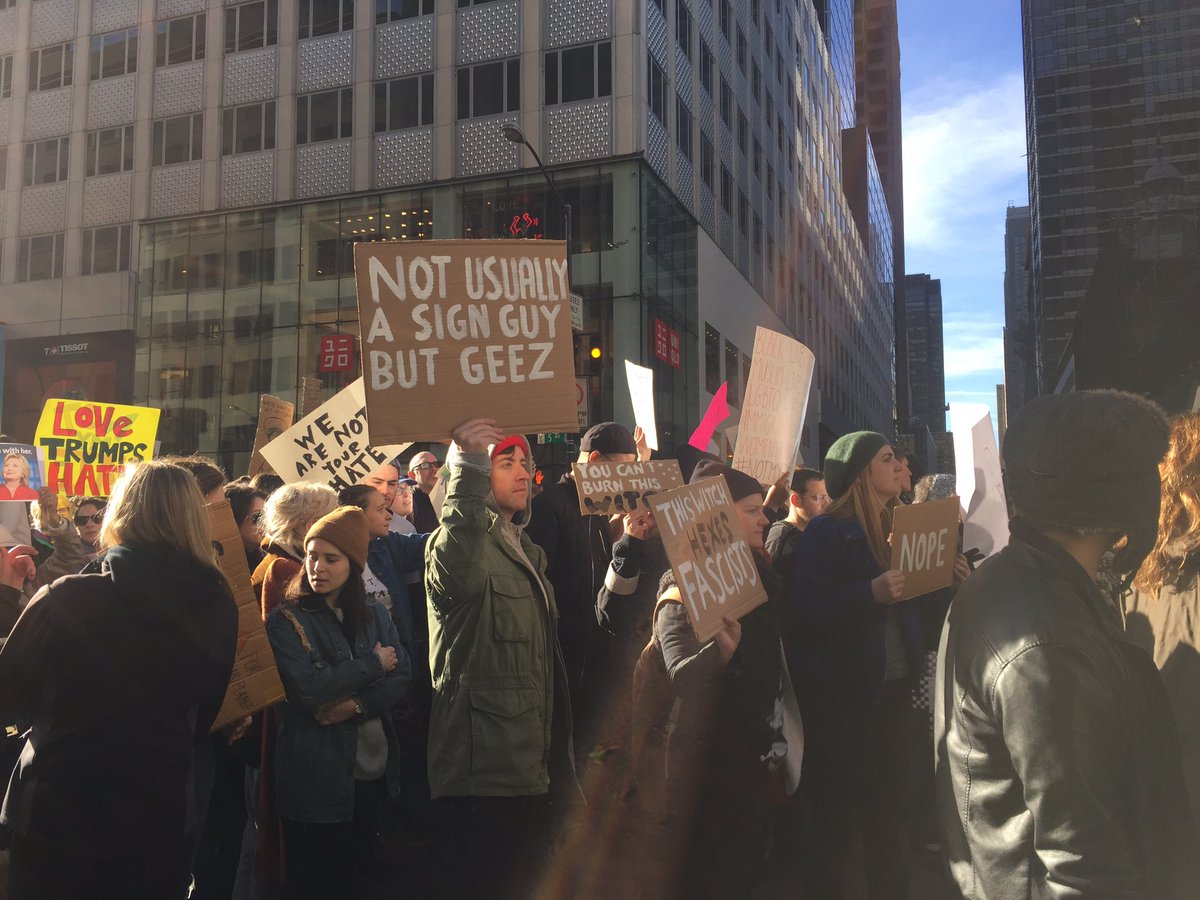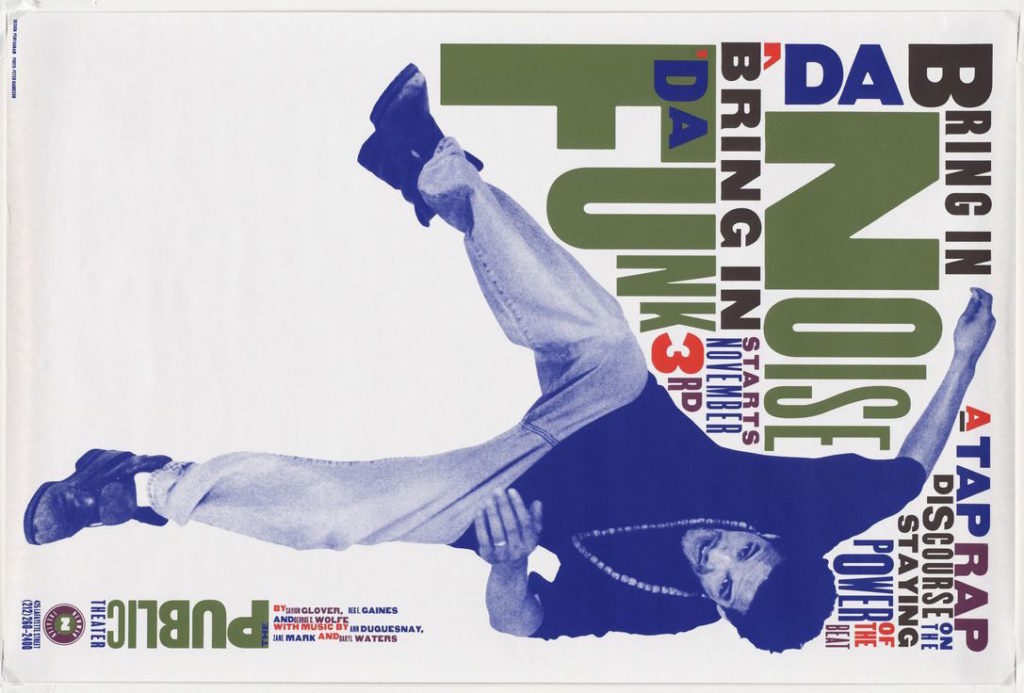No need to say that I consider myself an instance of the entreprecariat. At the bottom of this post, in my bio, I identify as “artist, designer and researcher”. While I actually had love stories –or flirts– with these realms, I don’t feel I fully belong. It turns out that my skills are softer than I expected. And I have the impression that many people feel the same. Maybe this is why impostor syndrome is so common among my peers. So why do I use those labels? To “diversify my business”, of course. To appear palatable to potential galleries, cultural institutions or clients. Yes, I have a relatively stable job (who knows for how long), but what you see here is the result of reading and writing in my spare time, during the weekends, after dinner, or while I commute. I guess this affects my tone of writing, making it hopefully more colloquial, friendly. I’m not ashamed nor I’m complaining of my situation. As everyone, I have these moments when I question the purpose of what I do, I ask myself whether I honestly care or I’m just pumping up my ego. One thing is certain, saying things as they are is somehow soothing, therapeutic. It feels good.


